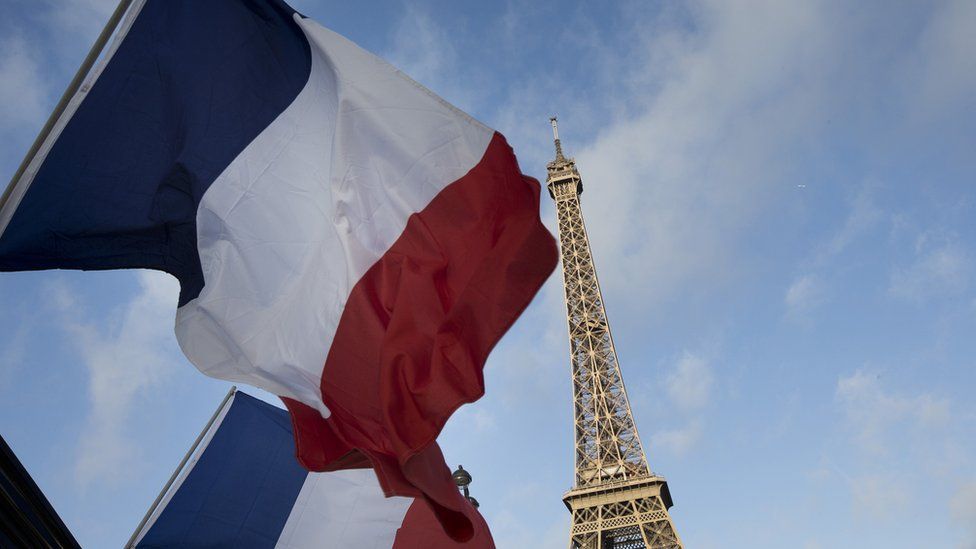What happened in the Paris attacks?
- Published

On Friday 13 November 2015, a number of attacks took place in Paris, the capital city of France.
The French police and army were called in to help keep people safe.
130 people were killed.
The French government quickly declared an emergency and 1,500 soldiers were called in to help police across the city.
How it happened
Europe falls silent to show support for Paris
On the Monday after the attacks people across Europe took part in a minute's silence to remember those affected in Paris.
Many people took to the streets of the French capital to show their support.
Your questions about what happened?
BBC's security correspondent Frank Gardner answers your questions
Lots of you have been sending in questions about the attacks so we asked the BBC's security correspondent to answer them for us.
Getting back to normal
Returning to normal life in Paris
Several museums, cafes and tourist attractions were closed in the days after the attacks but were reopened by the middle of the week.
Jenny went to Paris for Newsround to find out how people there are trying to get back to normal life.
Children of Paris united
Paris attacks: How have kids lives changed?
Children in the city have been trying to make sense of what happened and supporting each other.
Jenny went to meet some kids there to find out about how they're dealing with it all.
French family talk about Paris attacks
How have the Paris attacks affected kids in the UK?
The events in Paris have not just affected people there.
People all round the world have been reflecting on what the attacks mean for them.
UK kids speak about Paris
Leah went to speak to some school kids in the UK about what it's made them think about.
Who's behind the attacks
Ayshah examines how Islamic State or I.S tries to get people from the UK to join them
The extremist Islamic group known as IS, or the Islamic State, have now said they are responsible for the attacks.
IS are an extremist group based mainly in Syria and Iraq.
There are lots of problems and fighting in Syria and Iraq.
The response from France
French President Francois Hollande has called the attacks in Paris an "act of war" carried out by IS.
He declared three days of national mourning after the events.
President Francois Hollande gave a statement after the attacks
Hollande, said France will stay determined, unified and pull together.
Immediately after the events in Paris British Prime Minister, David Cameron, said he was shocked and pledged to do "whatever we can to help".
David Cameron talks about the attacks in Paris
He said Britain will "stand united" with France.
US President Barack Obama said America would also stand with France.
President Obama: 'This is a heartbreaking situation'
The Prince of Wales has sent French President Francois Hollande a message of "profound sympathy and solidarity with the people of Paris", a spokeswoman said.
Other tributes
Fans united to sing La Marseillaise before the match at Wembley
The world of sport paid its respects throughout the week with most sporting occasions holding a minute's silence.
Football fans gathered to watch England play France at Wembley on Tuesday, and came together to sing La Marseillaise, the French national anthem.
Tributes in pictures
Jenny reports on the attacks in Paris
Many countries have shown that they're standing side by side with France, by sending messages of support and lighting their iconic buildings with the colours of the French flag - red, white and blue.
- Published29 August 2022
- Published20 November 2015
- Published19 November 2015
- Published18 November 2015
- Published17 November 2015
